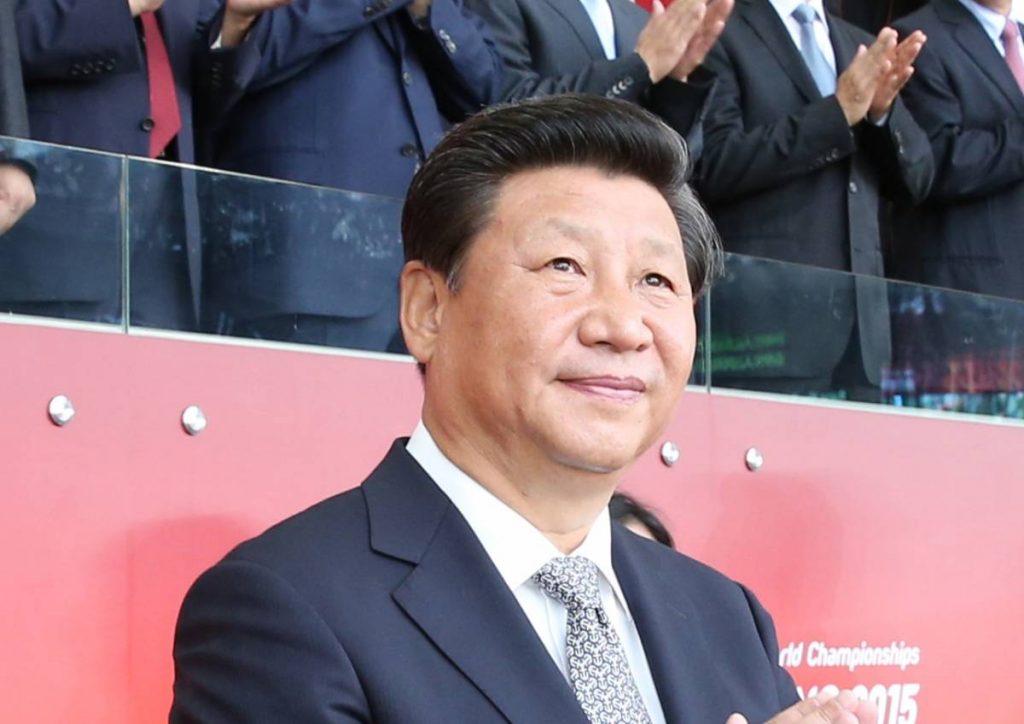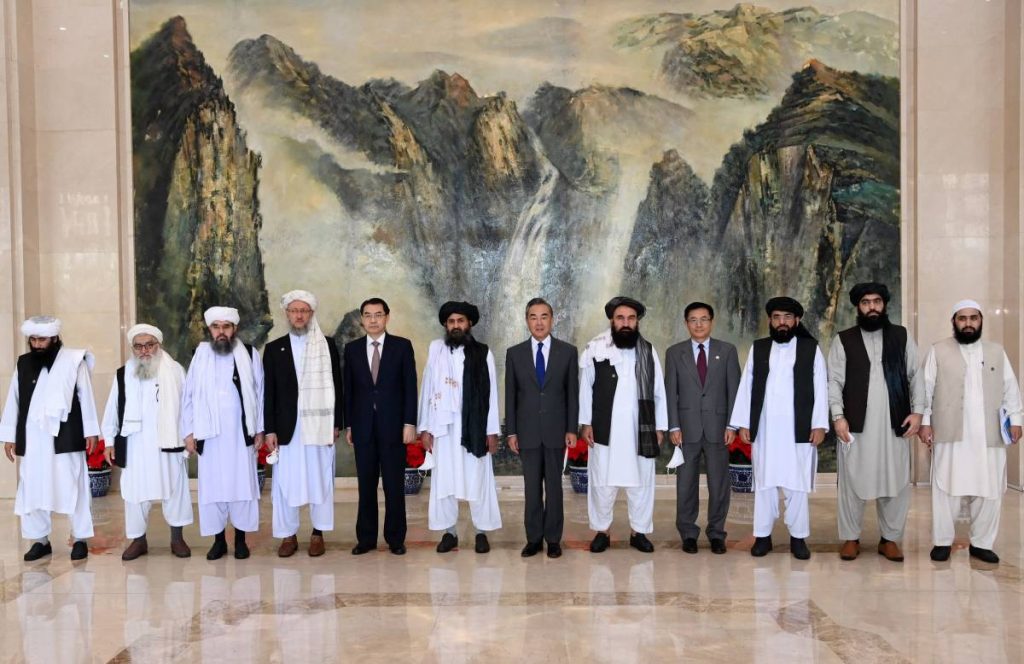China has said the Taliban will establish an “open and inclusive” Islamic government in the war-torn country and will ensure a peaceful transition of power….reports Asian Lite News
Several countries led by the UK have asked the world community not to bilaterally recognise the Taliban in Afghanistan, but China has done everything short of saying that it is a friendly force.
China has said the Taliban will establish an “open and inclusive” Islamic government in the war-torn country and will ensure a peaceful transition of power.
The Chinese Embassy in Kabul is among those few missions that are running at full steam and without any reason to either vacate the office or evacuate the staff. Its ambassador is stationed there though Chinese nationals living in the country have returned to China.
Chinese Foreign Ministry spokesperson Hua Chunying went to the extent of hoping the Taliban would take full responsibility for the safety of the Afghan people and foreign embassies and missions.
The Chinese government has decided to take the word of the Taliban on its face value, saying: “We noticed the statement from Afghan Taliban yesterday (Sunday) saying that the war is over and they will start consultation on establishment of an open and inclusive Islamic government and take the responsibility of the safety of Afghan citizens and foreign diplomatic corps.”

A Chinese government spokesperson said that Beijing has been maintaining contact and communication with the Taliban and playing a constructive role in promoting a political settlement.
China’s new-found love for the Taliban stems from the July-end meeting between Chinese Foreign Minister Wang Yi and the Taliban’s political commissioner Mullah Abdul Ghani Baradar in China.
The Taliban’s assurance that it will not encourage anti-China elements, like the alleged Uyghur Islamic militants of the East Turkistan Islamic Movement, to take roots in Afghanistan.
Some reports of the United Nations would have everyone believe that hundreds of fighters of the Movement, which has been linked to the al-Qaeda, are moving towards Afghanistan. The US has removed the Movement from its list of terrorist organisations, it may be mentioned.
ALSO READ: China set to woo Taliban, but fears of Uyghur backlash remain
It may also be added that China’s Xinjiang — home to the Uyghur Muslims — shares only a 76 km boundary with Afghanistan. The border is heavily fortified by the People’s Liberation Army.
Some western analysts have speculated that China wants to wield influence in this region and with the Americans on their way out, it would want to play a significant role in how the future of Afghanistan is settled.
However, China’s interests are much more materialistic than political. At best it may want Afghanistan to stop resisting entry into the Belt and Road Initiative Project.

The real reasons are economic in nature.
Afghanistan is reportedly sitting on deposits of rare earth elements like lanthanum, cerium and neodymium and other minerals such as copper, iron and zinc and gold worth trillions of dollars.
A consortium of Chinese companies is already mining in the Logar province. A Chinese government-owned company is drilling three fields for oil.
Its interest in the BRI comes from the fact that it has invested $60 billion in the China Pakistan Economic Corridor that links Xinjiang with Pakistan, and extending the highway further can link it with Kabul. China is also interested in a strategic road it is building in Afghanistan through the Wakhan corridor that would connect Xinjiang with Iran via Pakistan and Afghanistan.
An Indian media organisation has reported: “China seems to be approaching Afghanistan from a totally different direction; it is using every means to make the Afghans see the commercial sense in welcoming China into their country. Not war but economy is what the People’s Republic of China is betting on to bring Afghanistan into its web of influence; to make that happen, Beijing seems ready to partner with anyone who can deliver the goods, even if it be a regressive religio-political militia like the Taliban.”
Western defense experts, however, discount the commercial interest of China in Afghanistan.

CNN reported: “Such arguments have only intensified following the high-profile meeting between Taliban leaders and Chinese Foreign Minister Wang Yi last month… But for China, a neighbour of Afghanistan with substantial investment in the region, the security challenges posed by the abrupt return of the Taliban are far more pressing than any strategic interests down the road.”
It quoted Andrew Small, a fellow at the German Marshall Fund in Washington, as saying: “China does not tend to perceive Afghanistan through the prism of opportunities; it is almost entirely about managing threats.”
Small argued that China, wary for long about American military presence in Afghanistan, is now concerned that with the Americans gone, that country may become the hot bed for terrorists of all kinds and that could threaten China’s Xinjiang region.
“Although Beijing is pragmatic about the power realities in Afghanistan, it has always been uncomfortable with the Taliban’s ideological agenda… The Chinese government fears the inspirational effect of their success in Afghanistan for the militancy across the region, including the Pakistani Taliban,” Small told CNN.

Leave a Reply